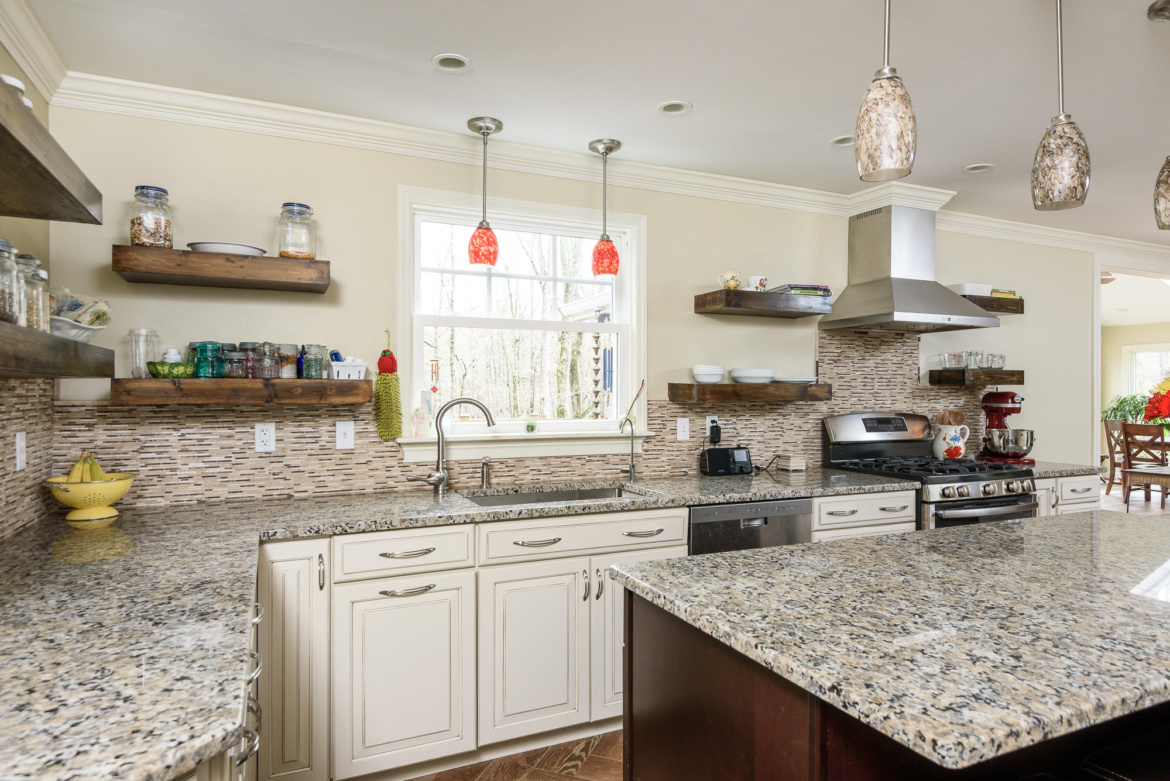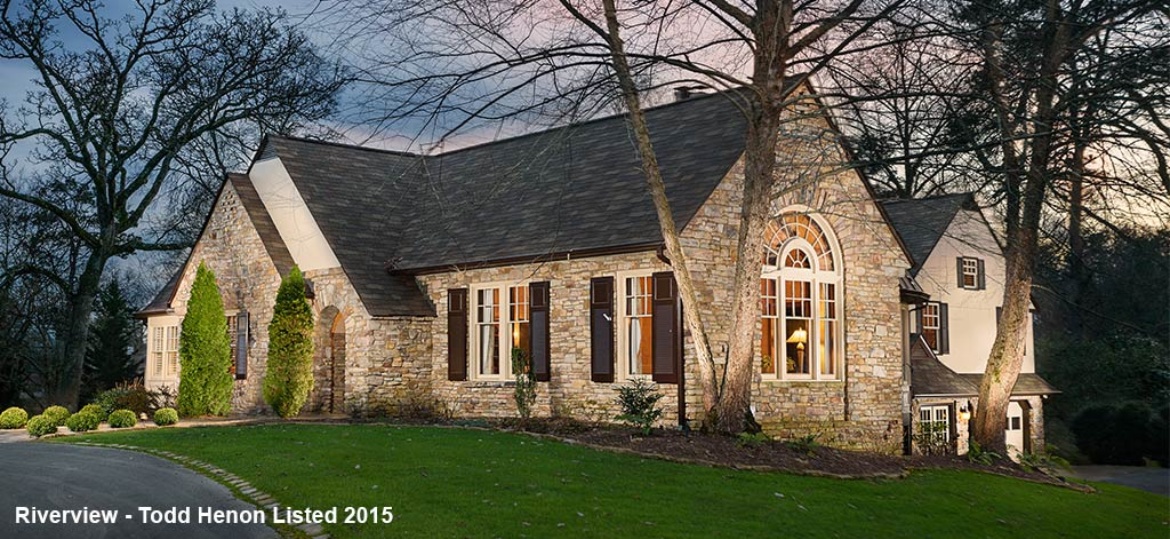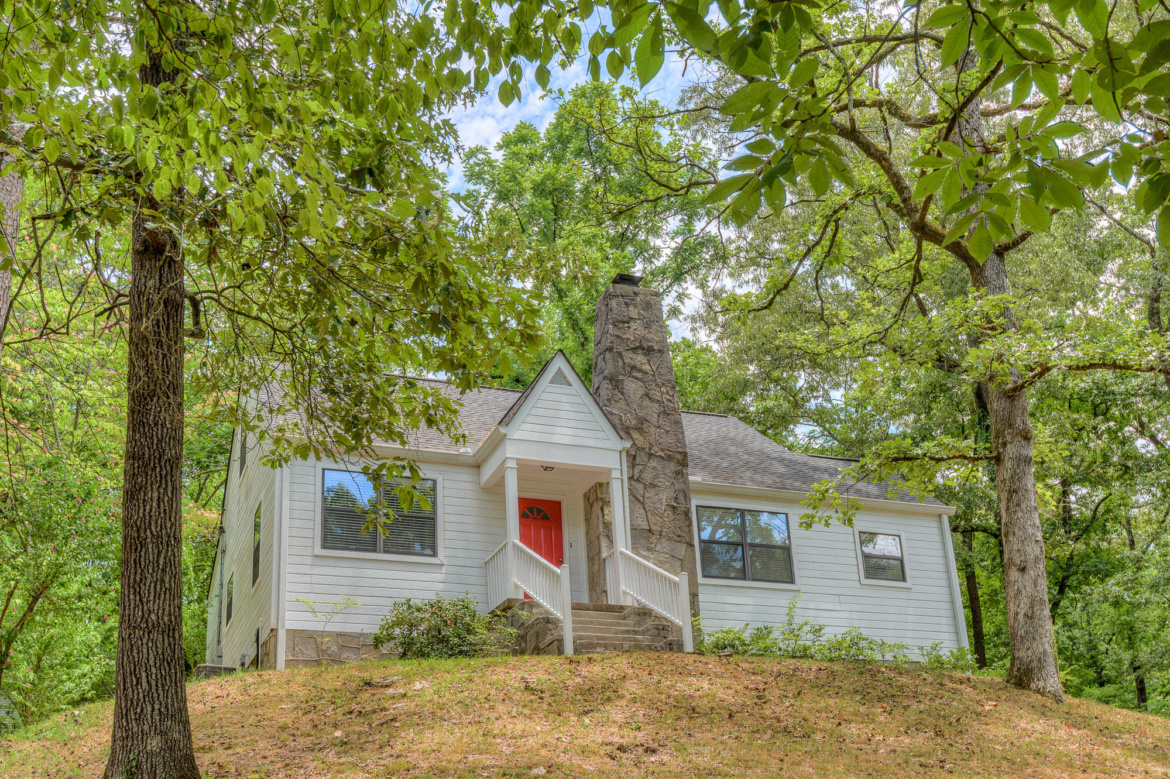
8 Ways to Boost Your Home’s Value
These 8 Ways to Boost Your Home’s Value are based on our Team’s last 24 months of sales and the latest data from Consumer Reports. Whether you’re thinking about selling or just want to keep your home looking great, this list is “spot on”.
Thank you for our friendship and feel free to give us a call when you’re ready to make a move, or just wondering what project adds the most value.

1: The Kitchen Still Wins
A “modern/updated kitchen” is the list-topper when Buyers are looking for their dream home. For as little as $5,000, you can add a new suite of appliances, as well as a new countertop and flooring, resulting in a fresh, cohesive look.
Best of the Best:
Stainless steel. Yes, it’s been around for decades, but this appliance finish still shows contemporary design, so it will signal “updated” in the mind of the buyer.
Quartz countertops. Quartz has started to challenge granite and marble as the go-to material in higher-end kitchens, and it requires none of the upkeep of comparably priced natural stones.
2: Make Floor Plans Flow Naturally
Bigger isn’t necessarily better in today’s market. An “open floor plan with flexible living space” is high on most Buyer’s lists.
Many younger buyers will use the additional living spaces as a dedicated office, especially if they work from home. And at the other end of the spectrum, Boomers like space for the grandkids or hobbies.
Best of the Best:
Flex rooms. You’ll see flex rooms advertised as an additional living area that can serve a variety of purposes, from a guest bedroom to a play room to an exercise room to an office.
Mother-in-law apartment. They can house an additional family member or provide rental income—allowing baby boomers to afford their house once they retire or helping millennials pay the mortgage. Rent is growing quickly, so this is a huge win for some.
Upstairs laundry rooms. Convenient to bedrooms and linen closets… need we say more?
3: Think About Energy
Lowering your home’s energy costs will save you money for as long as you live there and is expected to be a major selling point down the line. And don’t forget about water heating, which accounts for 16 percent of energy costs in the typical home.
Best of the Best:
High-efficiency windows. You probably won’t recoup the entire investment if you plan to sell right away, but it can be a bonus for you as long as you live there, and a selling feature for Buyers.
4: Make It Easy
Beyond a home’s cosmetic finishes, it’s important to keep the major mechanical systems in working order. Many first-time buyers will have used up most of their savings on the down payment, so having the heating system, plumbing, and electricity updated will give them peace of mind.
Best of the Best:
Updated systems. In addition to including the age of the system, it helps if you can also point to its reliability.
New roof. This will help assuage fears of water damage, ice dams, squirrel infestation, and other home disasters that can result from an old, bad roof.
Hardwood floors. Carpets are being replaced with long-wearing hardwoods with a durable factory finish. Engineered wood flooring, which uses a thin veneer of real wood or bamboo over structural plywood, tends not to wear as well as the solid wood.
5: Build a Home to Last
The existing housing stock isn’t equipped to safely accommodate that many older people—too many steep staircases and slippery step-in bathtubs. Forward-thinking homeowners are making necessary improvements to their home now—and those changes will benefit people of all ages.
Best of the Best:
Walk-in shower. Curbless showers eliminate the threshold between the shower and surrounding bathroom, making them wheelchair accessible, when the time comes.
Master on main. A floor plan in which the master bedroom is on the first floor reduces the need to climb stairs. It’s one of the most popular requests, not only from Boomers but from families who want some privacy.
6: Fresh Paint Is Still Important
Paint keeps your home looking great while also defending its surfaces from wear, tear, and the elements. Focus on high-traffic areas, including the kitchen and bathrooms. Do the job yourself for a few hundred dollars in material costs or pay a professional. Don’t forget the trim!
Best of the Best:
Neutral color scheme. Yes, we know it’s boring. You’d be surprised how many people still can’t envision your orange living room with their blue color scheme. Make it easy and repaint it beige.
7: Remember the Outdoors!
Your home’s property is another opportunity to expand its living space. Adding a deck or patio, with room for seating and a built-in or freestanding grill, is a way to create a defined space for outdoor living.
But remember the rule of low upkeep, especially if your future buyer is likely to be a millennial, who would rather see an outdoor fire pit surrounded by a simple seating arrangement. No need to go overboard with lush landscapes – Buyer’s see this as a chore and an expensive water bill.
Best of the Best:
Curb appeal. Trim overgrown shrubs, make minor repairs to the façade, including painting the front door makes a huge difference.
8: Ensure Your New Technology Is Smart
High-tech features offer notoriously bad returns on investment because technologies tend to evolve quickly. The days of home theaters have come and gone.
But certain devices add to home value and interest, including programmable thermostats like Nest. Also consider security systems or auto-locks.
Best of the Best:
Whole-house generator. Power failures are a reality for more homeowners. Stationary generators can usually power the entire property. Not a bad idea, especially if you live outside the city limits.




